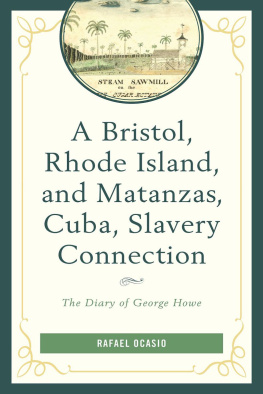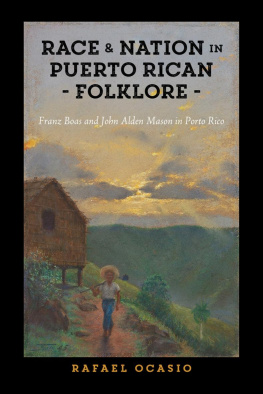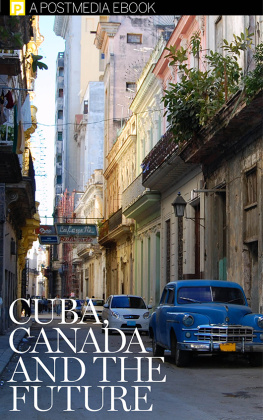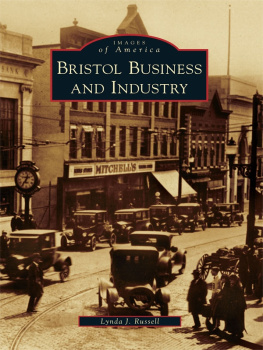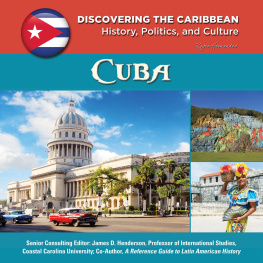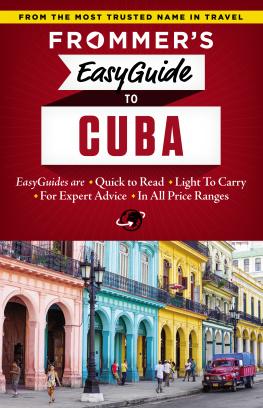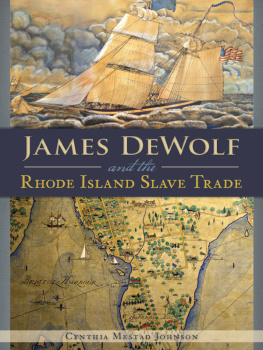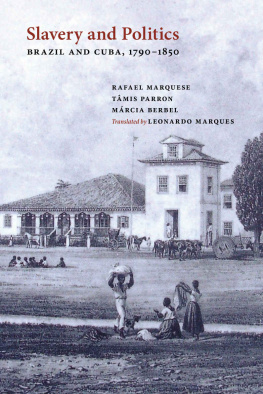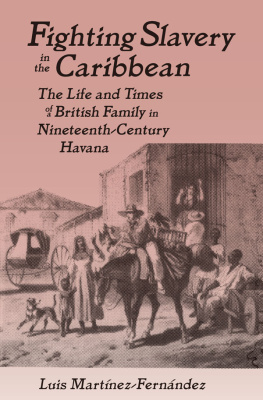I traveled to several institutions to conduct research for this book. I am thankful to librarians at the Auburn Avenue Research Library in Atlanta, Georgia for their suggestions of primary sources on the Atlantic slavery trade and to Ania Gonzlez, Special Collections at Florida International University, for her help in navigating the Levi Marrero Collection.
I am also indebted to several research libraries in Rhode Island for facilitating access to their archives: Kim Nusco, Assistant Librarian for Research and Reference Services at John Carter Brown Library; Bridget Sullivan, Registrar at Newport Historical Society, and C. Morgan Grefe, PhD, Executive Director, The Rhode Island Historical Society. James DeWolf Perry at Tracing Center on Histories and Legacies of Slavery graciously entertained my questions about the historical research behind the making of Traces of the Trade: A Story from the Deep North.
At my home institution I must recognize the continued support of Stephany Kurth, Access Services and Interlibrary Coordinator, who managed to find for me the most obscure books published in Cuba in the nineteenth century. Many thanks to Gianni Rodrguez, Climate Action Fellow, Center for Sustainability at Agnes Scott College, former student and passionate fellow Caribbean, for bringing me from Cuba recent publications on Afro-Cuban subjects. Former student and rising poet Paige Sullivan dutifully served as my editor. An endowed research stipend as a Charles A. Dana chair allowed me to travel to Bristol, Rhode Island, where I enjoyed one of Howes favorite patriotic activities, listening to 4th of July speeches.
This book could not have been written without the strong support of the staff at Bristol Historical and Preservation Society, who generously put to my disposition their archives of manuscripts and allowed me to work with Howes original manuscript. My many thanks go to Board members Derwent (Derry) Jean Riding and Claire Benson for their time and sharing their knowledge of the impact of the DWolf family in Bristol, Rhode Island. To June Truitt, transcriber of George Howes diary, I owe many hours of conversations patiently walking me through the complex commercial web that Howe must have experienced while in Bristol and in Cuba. She kindly introduced to me Howes painting of enslaved worker Peter, whose haunting image brought me to write this book. I also appreciate Lisa DeCesare for facilitating permission to use excerpts from Howes diaries and to reproduce his drawings.
I dedicate this book to my partner Charles W. Harper, who joined me in my travels through the enchanting landscape of New England and patiently heard so many of my stories about George Howe. I owe to him my viewing of Puerto Rican-born humpback whales feeding on the coast of Provincetown, an exciting and spiritual experience unlike anything I had experienced before.
Rafael Ocasio (PhD, Latin American Literatures, University of Kentucky, 1987) is Charles A. Dana Professor of Spanish at Agnes Scott College, Decatur, Atlanta, Georgia. He is the author of Cubas Political and Sexual Outlaw (2003), Latin American Culture and Literature (2004), The Making of a Gay Activist (2007), and Afro-Cuban Costumbrismo: From Plantations to the Slums (2012). He has concluded a book manuscript: Franz Boas in Puerto Rico: Retention and Reinvention of Puerto Rican Folklore, an edited, critical anthology of oral folklore documented by that reputable anthropologist in Puerto Rico in 1915.
He teaches courses on Latin American literature and film and Spanish-language courses.
Abbot, Abiel. Letters Written in the Interior of Cuba between the Mountains of Arcana, to the East, and of Cusco to the West . Boston: Bowles and Dearborn, 1829.
Abbott, Elizabeth. Sugar: A Bittersweet History . New York: Overlook Press, 2011.
Antologa crtica de la historiografa cubana (poca colonial) , edited by Carmen Almodvar Muoz. Havana: Editorial Pueblo y Educacin, 1986.
Apuntes histricos sobre el antiguo municipio de Esperanza y sus medicos. Cuaderno de historia de la Salud Pblica 95 (JanuaryJune 2004). Accessed August 11, 2019. http://scielo.sld.cu/scielo.php?script=sci_arttext&pid=S004591782004000100023.
Baker, Christopher P. Cubas Tano People: A Flourishing Culture, Believed Extinct. Accessed August 11, 2019. http://www.bbc.com/travel/story/20190205-cubas-tano-people-a-flourishing-culture-believed-extinct.
Balboa Navarro, Imilcy. De los dominios del rey al imperio de la propiedad privada: Estructura y tenencia de la tierra en Cuba (siglos XVIXIX) . Madrid: Consejo Superior de Investigaciones Cientficas, 2013.
Barcia, Manuel. Seeds of Insurrection: Domination and Resistance on Western Cuban Plantations, 18081848 . Louisiana State University Press, 2008.
Barnet, Miguel and Esteban Montejo. Biografa de un cimarrn . Barcelona: Ediciones Ariel, 1968.
. Biography of a Runaway Slave . Translated by W. Nick Hill. Willimantic, CT: Curbstone Press, 1994.
. Race in Cuban Society Today: The Letter and the Spirit. In Culture and the Cuban Revolution , edited by John Kirk and Leonardo Padura Fuentes, 219227. University Press of Florida, 2001.
Baron, Robert C. Pioneers and Plodders: The American Entrepreneurial Spirit . Colorado: Fulcrum Publishers, 2004.
Barton, David and Nigel Hall. Introduction. In Letter Writing as a Social Practice , edited by David Barton and Nigel Hall, 114. Amsterdam/Philadelphia: John Benjamins, 1999.
Bazerman, Charles. Letters and the Social Grounding of Differentiated Genres. In Letter Writing as a Social Practice , edited by David Barton and Nigel Hall, 1529. Amsterdam/Philadelphia: John Benjamins, 1999.
Beldarran Chaple, Enrique. Sanidad y esclavitud: Medidas para contrarrestar las enfermedades de los esclavos en Cuba. Afro-Hispanic Review 34, no. 2 (Fall 2015): 929.
Bennish, Michael L. Cholera: Pathophysiology, Clinical Features, and Treatment. In Vibrio Cholera and Cholera: Molecular to Global Perspectives , edited by I. Kaye Wachsmuth, Paul A. Blake, and Orjan Olsvik, 229255. Washington, D.C.: ASM Press, 1994.
Bergad, Laird W. Cuban Rural Society in the Nineteenth Century: The Social and Economic History of Monoculture in Matanzas . Princeton University Press, 1990.
Bergad, Laird W., Fe Iglesias Garca and Mara del Carmen Barcia. The Cuban Slave Market 17901880 . Cambridge University Press, 1995.
Bernier, Celeste-Marie. Characters of Blood: Black Heroism in the Transatlantic Imagination . University of Virginia Press, 2012.
Blake, Paul A. Historical Perspectives on Pandemic Cholera. In Vibrio cholera and Cholera: Molecular to Global Perspectives , edited by I. Kaye Wachsmuth, Paul A. Blake, and Orjan Olsvik, 293295. Washington, DC: ASM Press, 1994.
Blight, David W. Introduction. In Teaching Hard History: American Slavery , edited by Kate Shuster, 78. Atlanta: Southern Poverty Law Center, 2018. Accessed August 11, 2019. https://www.splcenter.org/sites/default/files/tt_hard_history_american_slavery.pdf.
Bolvar Arstegui, Natalia. Cuba: Imgenes y relatos de un mundo mgico . Havana: Ediciones Unin, 1997.
Boutelle, R.J. The Most Perfect Picture of Cuban Slavery: Transatlantic Bricolage in Manzanos and Maddens Poems by a Slave. In Journeys of the Slave Narrative in the Early Americas , edited by Nicole Aljoe and Ian Finseth, 143170. University of Virginia Press, 2004.
Branche, Jerome. Colonialism and Race in Luso-Hispanic Literature . University of Missouri Press, 2006.
Bretos, Miguel A. Matanzas: The Cuba Nobody Knows . University Press of Florida, 2010.
Bristol-Cuba Connection. Bristol Historical & Preservation Society. Accessed August 11, 2019. http://www.bhpsri.org/Bristol-Cuba_Connection.html.
Browne, Kathrina. Traces of the Trade: A Story from the Deep North. DVD. Directed by Katrina Browne. N.p.: Ebb Pod Productions, 2008.
Next page
